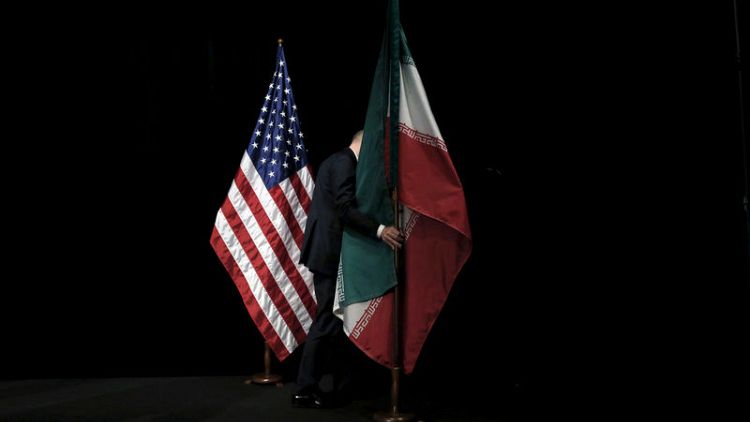By Michelle Nichols
UNITED NATIONS (Reuters) - Washington will push the U.N. Security Council to toughen its stance against Iran working on ballistic missiles capable of delivering nuclear weapons and carrying out ballistic missile launches, U.S. Secretary of State Mike Pompeo said on Wednesday.
Pompeo also said an arms embargo on Iran should not be lifted in 2020 and called on the council to establish "inspection and interdiction measures, in ports and on the high seas, to thwart Iran's continuing efforts to circumvent arms restrictions."
"Iran is harboring al Qaeda, supporting Taliban militants in Afghanistan, arming terrorists in Lebanon, facilitating illicit trade in Somali charcoal benefiting al-Shabaab, and training and equipping Shia militias in Iraq," Pompeo told a Security Council meeting on the implementation of U.N. sanctions on Iran.
Russia and China - which are council veto powers along with the United States, France and Britain - are unlikely to support the measures proposed by Pompeo. In February Russia vetoed a Western attempt to have the Security Council call out Tehran in a resolution on Yemen.
A 2015 U.N. resolution "called upon" Iran to refrain for up to eight years from work on ballistic missiles designed to deliver nuclear weapons. Some states argue that the language does not make it obligatory.
The United States wants the council to toughen that measure, Pompeo said, to reflect language in a 2010 resolution that left no room for interpretation by banning Iran from "activity related to ballistic missiles capable of delivering nuclear weapons, including launches using ballistic missile technology."
The United States, Britain and France have accused Tehran of flouting the current U.N. restrictions on Tehran's missile programme by carrying out ballistic missile launches. Iran says the missiles are not designed to carry nuclear weapons.
Most U.N. sanctions imposed on Iran were lifted in January 2016 when the U.N. nuclear watchdog confirmed that Tehran fulfilled commitments under a nuclear deal with Britain, France, Germany, China, Russia and the United States. But Iran is still subject to a U.N. arms embargo and other restrictions.
The U.N. sanctions and restrictions on Iran are contained in the 2015 resolution that also enshrines the 2015 Iran nuclear deal, which U.S. President Donald Trump withdrew Washington from in May. European powers have been scrambling to salvage the deal.
(Additional reporting by Lesley Wroughton in Washington; Editing by Chizu Nomiyama and Frances Kerry)
